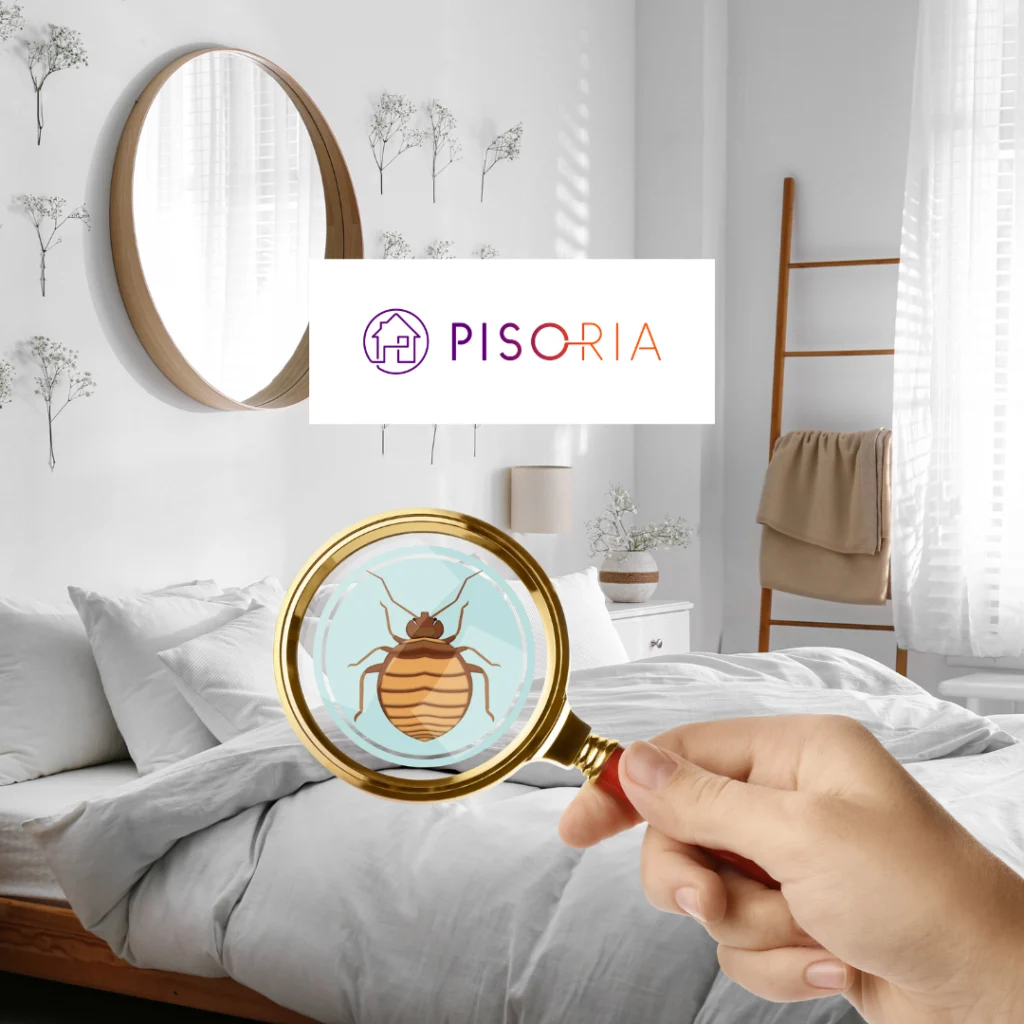Bed Bug Infestations in London: What Tenants Need to Know

Bed bug arrived in London. London, the vibrant and bustling capital of the United Kingdom, is known for its rich history, stunning architecture, and diverse culture. But beneath the surface of this global metropolis, a different kind of buzz is causing concern among residents – bed bugs. In recent years, London has witnessed a resurgence of bed bug infestations, leaving tenants worried and landlords scrambling for solutions. In this comprehensive guide, we will explore the rising bed bug problem in London and provide valuable insights for tenants on prevention, detection, and treatment. Whether you’re a long-time resident or a newcomer to this exciting city, understanding how to protect your home from these unwelcome pests is of utmost importance.

The Bed Bug Resurgence in London
In the past few decades, bed bugs seemed like a relic of the past, a problem our grandparents might have encountered. However, they have made a remarkable comeback, and London is not immune to their resurgence. The factors contributing to this resurgence include increased travel, changes in pest control methods, and the development of pesticide resistance among bed bugs. As tenants, it’s essential to stay informed about these trends to protect your living space.
Understanding Bed Bugs
To effectively combat bed bugs, it’s crucial to understand what you’re dealing with. Bed bugs are small, flat, reddish-brown insects that feed on the blood of humans and animals. They are nocturnal, emerging at night to feed, and then hiding in cracks and crevices during the day. While their bites are generally not harmful, they can cause itching and discomfort. Recognizing bed bugs and their habits is the first step in addressing an infestation.
Check what NHS says about it: https://www.nhs.uk/conditions/bedbugs/
Signs of a Bed Bug Infestation
Bed bugs are notorious for their secretive behavior, but they leave behind several telltale signs of their presence. Look out for small, itchy welts on your skin, often arranged in a line or cluster. You may also notice tiny bloodstains or dark fecal matter on your bedding and furniture. Furthermore, their discarded exoskeletons are often found near their hiding spots. Being able to identify these signs can help you act promptly in case of an infestation.
Prevention Strategies
Prevention is the key to avoiding the headache and stress of a bed bug infestation. Whether you’re moving into a new apartment or have been living in one for years, taking proactive steps can make all the difference. Inspect second-hand furniture thoroughly, seal cracks and crevices in your home, and consider using mattress encasements. Maintaining a clean, clutter-free environment can also deter bed bugs from settling in your residence.
What to Do If You Suspect Bed Bugs
If you suspect a bed bug infestation, don’t panic. Instead, act promptly. Isolate any infested items, such as bedding or clothing, and notify your landlord or property manager immediately. It’s crucial to involve professional pest control services for a thorough inspection and treatment. Effective bed bug removal requires the expertise and tools that licensed pest control professionals can provide.
Tenant-Landlord Responsibilities
It’s essential to understand the responsibilities of both tenants and landlords when it comes to bed bug infestations. Laws and regulations may vary, but generally, landlords are responsible for addressing the issue promptly. Tenants must cooperate with the treatment process, including preparing the space for pest control. Knowing your rights and obligations can help facilitate a smoother resolution.

Treatment Options
The choice of treatment method depends on several factors, including the severity of the infestation, the type of dwelling, and individual circumstances. Professional pest control experts are well-equipped to assess the situation and recommend the most suitable approach. Here, we’ll explore a variety of treatment options commonly used to combat bed bugs.
- Chemical Treatments: Chemical treatments involve the use of insecticides to eliminate bed bugs. These treatments are typically applied to areas where bed bugs hide, such as cracks, crevices, and the seams of mattresses and furniture. While chemical treatments can be effective, it’s essential that they are administered by trained professionals who have the expertise to apply these chemicals safely and effectively. Moreover, some bed bugs have developed resistance to certain pesticides, making it important to choose the right product based on the specific infestation.
- Heat Treatments: Heat treatments, also known as thermal remediation, have gained popularity as an effective bed bug eradication method. In this process, high temperatures, typically between 120°F and 140°F, are applied to infested areas. Bed bugs and their eggs are sensitive to heat, and this treatment method can effectively eliminate them. It’s essential that the entire space is treated uniformly, ensuring that no area is left untouched. The advantage of heat treatment is that it does not involve the use of chemicals, making it a safer option for individuals with chemical sensitivities.
- Fumigation: Fumigation is a method that involves sealing the infested area and introducing a gas or vaporized pesticide to eliminate bed bugs. This method is often used for severe infestations or in cases where other treatments have proven less effective. Fumigation requires vacating the premises for a period, typically a day or two, to ensure the safety of occupants. It’s an effective method for treating large spaces, but it’s essential to follow safety protocols and hire a licensed fumigation professional.
- Non-Chemical Treatments: Some individuals may have concerns about the use of chemicals in their living spaces. Non-chemical treatments offer alternative solutions. These methods may include the use of diatomaceous earth, a natural substance that dries out and kills bed bugs, or the use of steam to kill bed bugs and their eggs. While non-chemical treatments can be effective, they may require more time and effort, and it’s crucial to follow application guidelines carefully.
- Follow-Up Inspections and Treatments: Regardless of the method chosen, it’s important to understand that a single treatment may not completely eliminate the infestation, especially in severe cases. Follow-up inspections and treatments may be necessary to ensure that all bed bugs, including any eggs that may have hatched after the initial treatment, are eradicated. Professional pest control services often include follow-up visits as part of their treatment plans to address any potential resurgence.
- Preventive Measures: After successful treatment, it’s crucial to adopt preventive measures to avoid future infestations. Regular inspections, maintaining a clutter-free environment, and practicing good hygiene are key components of bed bug prevention. Ongoing communication with your landlord or property manager is also essential to address any issues promptly.
The choice of treatment for a bed bug infestation depends on several factors, and it’s best left in the hands of experienced pest control professionals. Whether you opt for chemical treatments, heat treatments, fumigation, or non-chemical alternatives, the most important thing is to act promptly and decisively. Bed bugs are resilient pests, and early intervention is key to successful eradication. Additionally, remember that preventive measures play a crucial role in keeping your home bed bug-free in the long run. Consulting with professionals, following their advice, and staying vigilant will help you regain your peace of mind and comfort in your London residence.
Keeping Bed Bugs at Bay
Preventing future infestations is just as crucial as addressing the current one. Regular inspections, vigilant maintenance, and ongoing communication with your landlord or property manager are vital steps to keep bed bugs at bay. Remember that diligence is your best defence against these persistent pests.
In this guide, we’ve delved into the concerning resurgence of bed bugs in London and provided you with valuable insights on prevention, detection, and treatment. As a tenant in this vibrant city, it’s crucial to stay informed about the risks and measures you can take to protect your home. By understanding the signs of infestations, your responsibilities, and the treatment options available, you can navigate the challenges of bed bugs with confidence. Keep in mind that the best defense is a proactive one, and early action is key to preventing the spread of these unwanted intruders. Stay vigilant, and should you ever face a bed bug issue, don’t hesitate to seek professional assistance for a swift and effective solution. Your comfort and peace of mind in your London home are worth it.

